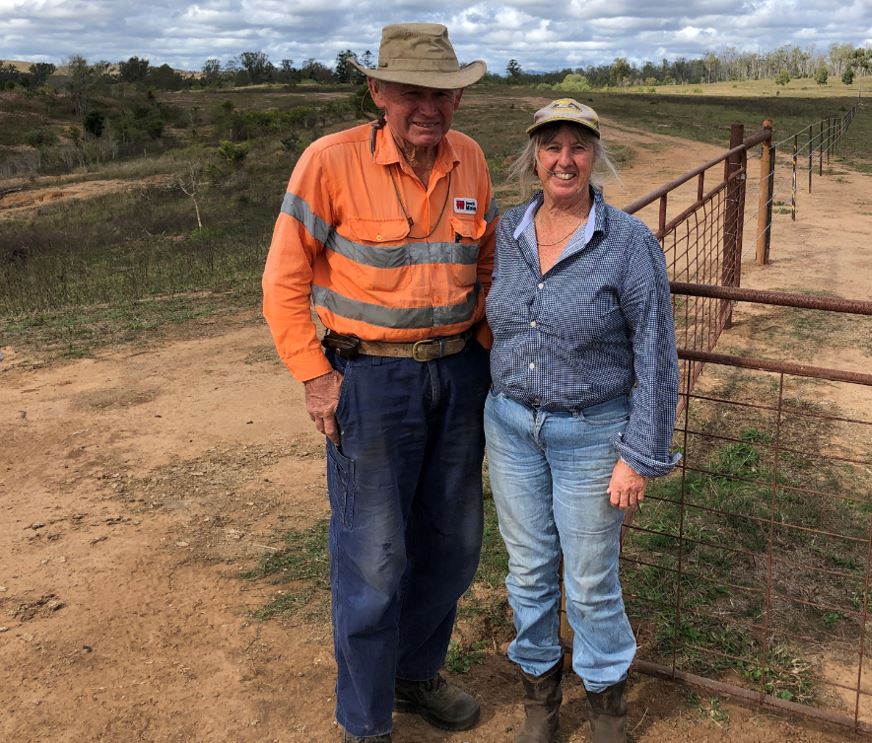Riparian fencing and off stream water – a win : win for the McDowells
| Landholder | Tom & Leslie McDowell |
|---|---|
| Project | "GRASS", Grazing Resilience and Sustainable Solutions program |
| Location: | "Rivendell" on the Burnett River south of Gin Gin, Queensland |
| Area | 190 hectares |
| Stock | 80 breeder cows, 20 milking goats |
| Rainfall | Long term average: 897 mm 2019: 358 mm |
“Fencing off the river frontage and solar pumping water to tanks on our hill means our breeders no longer have to traverse the long steep bank down to the river and we can now look after the riverbank,” — Tom McDowell.
The McDowells are relative newcomers to Queensland having moved up from NSW in 2019. Like many others, the McDowells saw themselves in the worst drought in 100 years. The surface water across their property had dried up, and their cattle were forced to traverse the steep riverbank to get water.
“During the drought it was tough going for the cows to get up and down the steep riverbank for drinking water. Now that we’ve fenced the river and have off stream water, it is win for the riverbank and a win for our cows. We can also split some paddocks for more even grazing and pasture recovery,” said Tom.

“It is actually through our goats that we got involved in the Grazing Resilience and Sustainable Solutions (GRASS) program” Lesley said. “We met Kylie Hopkins at a goat conference. She runs her own goats but is also a beef extension officer with the Department of Agriculture and Fisheries (DAF) and Kylie suggested we contact DAF extension officer Roger Sneath and get involved in GRASS.”
“Grass has helped us to get our property map and look at ways for reducing soil erosion and improving our paddocks. We are hugely grateful for the incentive funding support to complete the riparian fencing project,” she continued.
Preparing for the next drought
With the memory of the 2019 drought in mind, GRASS introduced the McDowells to the concept of the dry season pasture budget. This essentially says that in Queensland whatever grass you have grown over summer and autumn must last until next summer, or more specifically, until several weeks beyond the “green date” when reliable pasture growth can likely be expected. Many people use the chances of getting 50mm of rain in three days as their green date. According to the ‘Australian CliMate’ website this occurs by the 27 December for Booyal, near Morganville. “We now assess our situation earlier in the year so that we can have good ‘rain ready’ pasture cover coming into summer to keep more rainfall in our paddocks, less runoff, and less erosion risk,” said Tom.
Since completing GRASS, Tom and Lesley have fenced their dam and split up some more paddocks for more even grazing and wet season spelling. “We will have the new troughs in soon, “said Lesley.
The Grazing Resilience and Sustainable Solutions (GRASS) program is funded through the Queensland Government’s Queensland Reef Water Quality Program and delivered by the Department of Agriculture and Fisheries (DAF, Burnett Mary Regional Group, Fitzroy Basin Association and NQ Dry Tropics. GRASS assists graziers with improving ground cover and reducing soil erosion to the Great Barrier Reef.
This case study was prepared by Roger Sneath, Senior Beef Extension Officer, Department of Agriculture and Fisheries in November 2022.